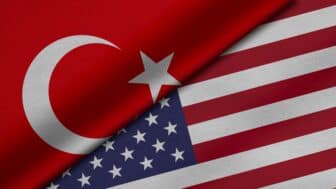Browse Topics
Categories
Format
Multimedia
Speakers Series

Food for Diplomacy USA
On September, 29, 2015, the Hollings Center partnered with the Lifelong Learning Center at Kadir Has University to hold an event entitled Food for Diplomacy USA. This event followed-up on the Center’s next generation dialogue, Decoding Perceptions in U.S.-Turkey Relations held in fall of 2013. The event was held as part of the Lifelong Learning […]

Decoding Perceptions in U.S.-Turkey Relations
Perceptions have weighed heavily on U.S.-Turkey relations and how American and Turkish leaders and the general public see one another. Despite an often robust bilateral relationship with the US, Turkish public opinion has always been skeptical of U.S. involvement in Turkey and the Middle East. On the other hand, U.S. public opinion on Turkey is usually uninformed […]

The Future of Afghan-U.S. Relations: Development, Investment, and Cultural Exchange
Afghan-U.S. relations are entering a new and uncertain period. While many U.S. policymakers are buoyed by the death of Osama Bin Laden in Pakistan and focused on completing the troop drawdown in 2014, there is no clear vision of what America’s future engagement with Afghanistan will look like. The sole certainty is that the United States […]

The Future of Turkey-U.S. Relations: Prospects for Cooperation in the Middle East (May 2010)
Turkey and the United States are increasingly engaged in the Middle East but with policies that seemingly diverge. This dialogue sought to understand the U.S. and Turkish foreign policies and proposed ways to enhance Turkish-American cooperation across fraught regional issues. Participants discussed a number of Middle East issues that affect US-Turkish relations: the Iranian nuclear […]

Quality Assurance in Higher Education: An International Dialogue on Progress and Challenges
[doc id=17153]Today, with the effects of globalization and with dramatically expanded access to higher education, the quality of education has become more crucial for national development and competitiveness as well as for individual success. The rise of cross-border education, including branch campuses, student and faculty mobility, and partnerships between universities in different countries, also raises […]
A non-profit, non-governmental organization dedicated to fostering dialogue between the United States and countries with predominantly Muslim populations in the Middle East, North Africa, South Asia, Eurasia and Europe
Stay Informed
Subscribe to our mailing list to stay up to date on our latest information.




